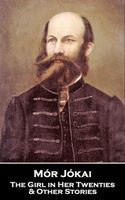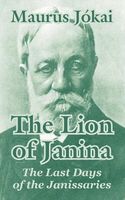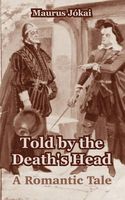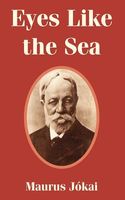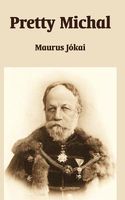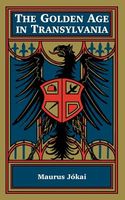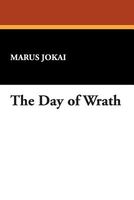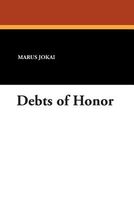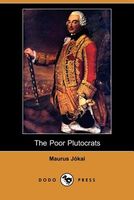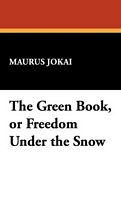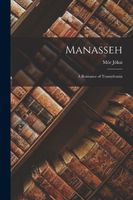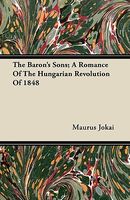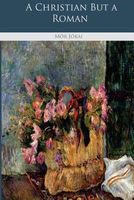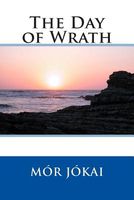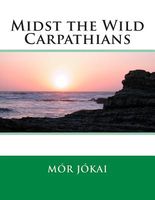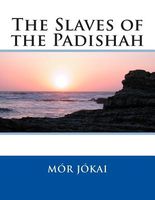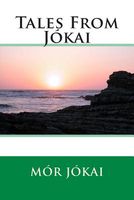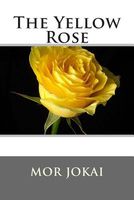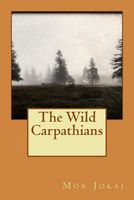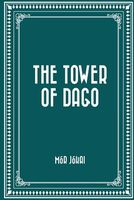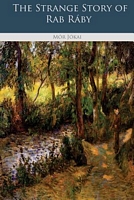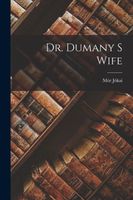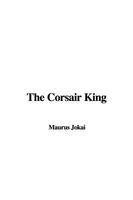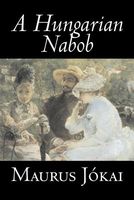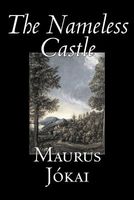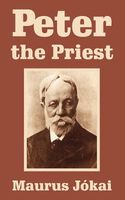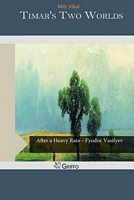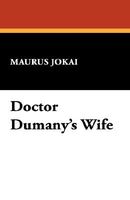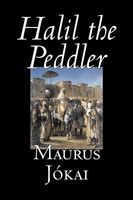- Welcome to FictionDB, Guest
- | My Account
- | Help

Maurus Jokai / Mor Jokai
Book List in Order: 30 titles
-
The Lion Of Janina
- Feb-2004
- / Historical
-
A historical novel of Ali Pasha of Janina, one of the most brilliant, picturesque, and capable ruffians of Turkish history. Jókai's exuberant imagination revels in the rich colors of the gorgeous East, while his ever alert humor makes the most of th...
-
Told By The Death's Head
- Jun-2004
- / General Fiction
-
Maurus Jokai (1825 - 1904) was a Hungarian novelist who took part as a journalist in the revolution of 1848. He wrote about 200 novels, including Timar's Two Worlds, Black Diamonds, and The Romance of the Coming Century....
-
Eyes Like The Sea
- Sep-2004
- / Literary
-
According to Wikipedia: "Mór Jókai, born Móric Jókay de Ásva (19 February 1825 �" 5 May 1904), outside Hungary also known as Maurus Jokai, was a Hungarian dramatist and novelist… Jókai was an arch-romantic, with an almost Oriental imaginati...
-
Pretty Michal
- Sep-2004
- / Romance
-
According to Wikipedia: "Mór Jókai, born Móric Jókay de Ásva (19 February 1825 �" 5 May 1904), outside Hungary also known as Maurus Jokai, was a Hungarian dramatist and novelist… Jókai was an arch-romantic, with an almost Oriental imaginati...
-
Golden Age in Transylvania
- Oct-2004
- / Historical
-
According to Wikipedia: "Mór Jókai, born Móric Jókay de Ásva (19 February 1825 �" 5 May 1904), outside Hungary also known as Maurus Jokai, was a Hungarian dramatist and novelist… Jókai was an arch-romantic, with an almost Oriental imaginati...
-
The Day of Wrath
- Sep-2007
- / General Fiction
-
Unlike some other reproductions of classic texts (1) We have not used OCR(Optical Character Recognition), as this leads to bad quality books with introduced typos. (2) In books where there are images such as portraits, maps, sketches etc We have ende...
-
Debts of Honor
- Sep-2007
- / General Fiction
-
Móric Jókay de Ásva (1825-1904), outside Hungary also known as Maurus Jokai or Mauritius Jókai, was a Hungarian nobleman, novelist, dramatist and revolutionary. He was active participant and a leading personality in the outbreak o...
-
The Poor Plutocrats
- Dec-2007
- / General Fiction
-
The tale includes mysterious bandits, counterfeiters, poisoners and murderers, plus portraits of Hungarian and Romanian peasant life in the later 1800s. Jókai rises to the sort of breathless excitement produced by Dumas.
Mór Jókai -- also...
-
-
-
Manasseh, A Romance Of Transylvania
- May-2008
- / Action Adventure
-
According to Wikipedia: "Mór Jókai, born Móric Jókay de Ásva (19 February 1825 �" 5 May 1904), outside Hungary also known as Maurus Jokai, was a Hungarian dramatist and novelist… Jókai was an arch-romantic, with an almost Oriental imaginati...
-
The Baron's Sons; A Romance Of The Hungarian Revolution Of 1848
- Jul-2011
- / General Fiction
-
Many of the earliest books, particularly those dating back to the 1900s and before, are now extremely scarce and increasingly expensive. We are republishing these classic works in affordable, high quality, modern editions, using the original text and...
-
Foreign Classical Romances: Poor Plutocrats
- Nov-2011
- / General Fiction
-
Moric Jokay de Asva (Maurus Jokai, 1825-1904) was a Hungarian dramatist and novelist. Poor Plutocrats, or Poor Rich, is the most widely known of all Maurus Jokai's masterpieces, which is set in "the wild, romantic, sylvan regions of the Wallachian an...
-
A Christian But A Roman
- Aug-2012
- / General Fiction
-
Excerpt from Chapter IIn the days of the Cæsars the country surrounding Rome vied in splendour and luxury with the capital itself. Throughout the whole region appeared the villas of Roman patricians, abodes of aristocratic comfort, where every ...
-
The Day of Wrath
- Feb-2014
- / General Fiction
-
This work has been selected by scholars as being culturally important, and is part of the knowledge base of civilization as we know it. This work was reproduced from the original artifact, and remains as true to the original work as possible. Therefo...
-
Midst the Wild Carpathians
- Feb-2014
- / General Fiction
-
Before us lies the valley of the Drave, one of those endless wildernesses where even the wild beast loses its way. Forests everywhere, maples and aspens a thousand years old, with their roots under water; magnificent morasses the surface of which is ...
-
The Slaves of the Padishah
- Feb-2014
- / General Fiction
-
The S -- -- family was one of the richest in Wallachia, and consequently one of the most famous. The head of the family dictated to twelve boyars, collected hearth-money and tithes from four-and-fifty villages, lived nine months in the year at Stam...
-
Tales from Jokai
- Feb-2014
- / General Fiction
-
At the general meeting of the Hungarian Academy on October 17, 1843, the secretary reported that the 100-florin prize for the best drama of the year had been awarded to Károly Obernik's Föur és pór (Squire and Boor), but that another drama, entit...
-
The Yellow Rose
- Feb-2015
- / General Fiction
-
Mór Jókai was an arch-romantic, with an almost Oriental imagination, and humour of the purest, rarest description. If one can imagine a combination, in almost equal parts, of Walter Scott, William Beckford, Dumas père, and Charles Dickens, togethe...
-
The Wild Carpathians
- Jun-2015
- / Historical
-
Hungarians regard Az Érdély arány kora as, on the whole, the best of Jokai's great historical romances, and, to judge from the numerous existing versions of it, foreigners are of the same opinion as Hungarians. Few of Jokai's other tales have been...
-
-
-
-
-
The Girl in Her Twenties & Other Stories
- Jul-2023
- / General Fiction
-
Móric Jókay de Ásva was born on the 18th February 1825 in Komárom, then in the Kingdom of Hungary but now part of Slovakia. Due to his timid and delicate constitution he was educated at home until the age of 10 and then sent away to complete his ...
-
The Corsair King
According to Wikipedia: "Mór Jókai, born Móric Jókay de Ásva (19 February 1825 �" 5 May 1904), outside Hungary also known as Maurus Jokai, was a Hungarian dramatist and novelist… Jókai was an arch-romantic, with an almost Oriental imaginati...
-
A Hungarian Nabob
The Nabob figure is a Hungarian potentate of vast estates, who lives amidst a crowd of retainers, wassailing companions, women, gamblers, fools, and gypsies. The plot relates to the intrigues of his dissolute heir and his marriage with a young gir...
-
The Nameless Castle
English translation of popular 19th century Hungarian. According to Wikipedia: "Mór Jóka, born Móric Jókay de Ásva (19 February 1825 �" 5 May 1904), outside Hungary also known as Maurus Jokai, was a Hungarian dramatist and novelist”...
-
Peter the Priest
English translation of popular 19th century Hungarian. According to Wikipedia: "Mór Jóka, born Móric Jókay de Ásva (19 February 1825 �" 5 May 1904), outside Hungary also known as Maurus Jokai, was a Hungarian dramatist and novelist”...
-
Timar's Two Worlds
According to Wikipedia: "Mór Jókai, born Móric Jókay de Ásva (19 February 1825 �" 5 May 1904), outside Hungary also known as Maurus Jokai, was a Hungarian dramatist and novelist… Jókai was an arch-romantic, with an almost Oriental imaginati...
-
Dr. Dumany's Wife
English translation of popular 19th century Hungarian. According to Wikipedia: "Mór Jóka, born Móric Jókay de Ásva (19 February 1825 �" 5 May 1904), outside Hungary also known as Maurus Jokai, was a Hungarian dramatist and novelist”...
-
-
Halil the Peddler
According to Wikipedia: "Mór Jókai, born Móric Jókay de Ásva (19 February 1825 �" 5 May 1904), outside Hungary also known as Maurus Jokai, was a Hungarian dramatist and novelist… Jókai was an arch-romantic, with an almost Oriental imaginati...
